Partners create advisory group for Eco Marine Power Research Institute
A number of shipping, maritime & technology professionals from several innovation-focused companies have agreed to join the Eco Marine Power Research Institute advisory group, Japan-based technology company Eco Marine Power (EMP) said. As informed, the group will focus on the exchange of ideas and solutions related to energy transition and shipping. It will also help guide further research into topics ranging from zero-emission ships to innovative energy-saving devices and strategies. “We need to find new ways to tackle the challenges posed by increased regulatory requirements and decarbonisation targets – reduced crew complements are finding it increasingly difficult to cope using conventional methods, which have proven to be inadequate,” Ninad Sharad Mhatre, Deputy Managing Director at Zeaborn Ship Management (Singapore), commented.
(Credits: www.offshore-energy.biz)
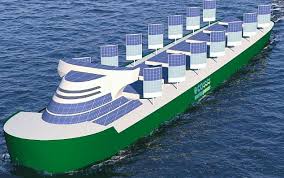
Hapag-Lloyd secures green financing for six LNG-powered newbuilds
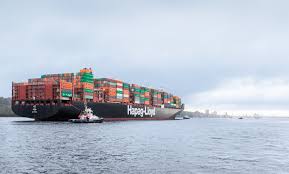
German liner company Hapag-Lloyd has concluded two green financial deals worth a total of $889 million. The financing will be used for six ultra-large 23,500 TEU container ships, which were ordered in December 2020. The company said that the two deals include debut transactions according to the Green Loan Principles of the Loan Market Association (LMA). The syndicated green loan worth $417 million has a 12-year maturity and will be used to finance three of the six container ships on order. “Our first green financings are a major milestone for us, as we are breaking new ground in the container shipping segment by financing newbuilding projects geared towards sustainability. The transactions will help us to modernise our fleet while further reducing our CO2 footprint at the same time,” said Mark Frese, Chief Financial Officer of Hapag-Lloyd.
(Credits: www.offshore-energy.biz)
Majority of world’s ports still dont use digital tech
The majority of the world’s 4,900 ports are not yet using digital technology for even the most basic processes, Innovez One, a Singapore-based provider of smart-tech and AI solutions for the maritime sector, said. As explained, 80 per cent of ports continue to rely on manual, legacy solutions such as whiteboards or spreadsheets to manage critical marine services such as towage, pilotage and launch boats. This leaves many ports commercially vulnerable and less able to compete in an increasingly digital world. While the phrase ‘smart ports’ has been used regularly within the maritime industry for a number of years, the benefits of digitalisation remain the preserve of only a few, large ‘Tier 1’ ports that have the profile and financial muscle. This has created a polarised landscape within the port sector, according to the tech company. “The current dynamic reflects the often-messy reality of port operations, which is a blend of high-tech digital and paper-based, manual processes sitting side-by-side,” David Yeo, CEO, Innovez-One, commented. “This causes issues in relation to interoperability, where systems are not talking to each other properly, which is impeding effective execution. However, it also highlights the fact that while global supply chains are becoming increasingly automated, of which ports are an integral part, the majority of ports still overwhelmingly rely on person-to-person systems.”
(Credits: www.offshore-energy.biz)
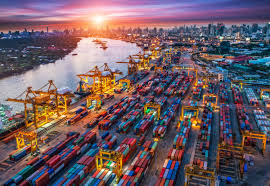
NGO Shipbreaking calls on EU to investigate fatalities at Turkish recycling yards
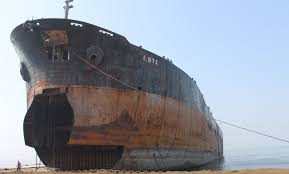
NGO Shipbreaking Platform is calling on the European Union to investigate incidents that claimed two lives at Turkish ship recycling yards that are included in the EU List of approved ship recycling facilities. According to the NGO, on 3 October 2020, a worker lost his life during the scrapping of two Transocean offshore rigs at Isiksan yard. A handrail broke and fell, hitting the worker at the back of his neck. Furthermore, on 4 February, another worker died when hit by a steel block which he was torch-cutting in the secondary cutting area of Simsekler yard, where a Carnival Corporation’s cruise vessel is currently being recycled. As informed, both yards were quick to immediately involve the concerned authorities. “These tragic fatal accidents are a sad reminder that ship recycling is a heavy and hazardous industry that exposes workers to several safety risks. We are closely following the investigations of the yards, as well as those of Turkish authorities, and expect that full transparency is maintained,” says Ingvild Jenssen, Director and Founder of the NGO Shipbreaking Platform.
(Credits: www.offshore-energy.biz)
Kongsberg Maritime chooses Sonihull antifouling systems
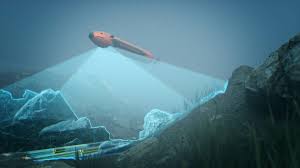
Sonihull, the UK-based provider of environmentally friendly anti-fouling systems, has signed an agreement with Norwegian maritime technology group Kongsberg Maritime to be its sole-supplier of ultrasonic antifouling systems. “This agreement is a significant achievement in the current climate,” Darren A. Rowlands, CEO of Sonihull, said. “As the maritime industry faces the challenges of a low carbon future, we are developing zero-harm anti-fouling systems to meet the environmental and economic challenges caused by bio-fouling,” Rowlands added. He explained that Sonihull systems can improve long-term fuel economy by up to 20% in waterjet and propeller applications. In other applications, such as box cooler installations, the systems can reduce capital and MRO costs by up to 95%.
(Credits: www.offshore-energy.biz)

